|
The Brazilian police don’t have the best reputation when it comes to dealing with their public. Mostly because their way of doing so seems to involve a lot of firing tear gas and rubber bullets at peaceful protesters. Understandably, that's not an image Brazil's government is keen to maintain; hyper-violent police are pretty embarrassing, especially when the world's media is watching. So ahead of the World Cup – which Brazilian protesters weren't best pleased about – they decided to do something about it. Steve Costello, a 72-year-old grandfather of 11 from Bolton, has been teaching karate in Brazil for 20 years. In the mid-90s he was recruited to teach police non-violent suppression techniques, presumably so they could deal with threats without adding to their already massive civilian death toll. Ahead of the World Cup he was asked to give Sao Paulo's riot police a few lessons in his brand of karate. I gave him a call to see how that went. VICE: Hi Steve. So how did you get into training Brazilian riot police karate? Steve Costello: It first started in 1996. I was the first English instructor to do a karate course in Curitiba [a city about an hour from the coast]. I was teaching kids, but the chief of the riot police was present. He asked me to do a training session with the police forces, and after that I got invited over to Brazil on several occasions to train with the Command Operations Elite, the mounted police, firemen and the state cavalry troops. There were also a lot of training sessions organised with the military police in Curitiba and other cities. They even invited the riot police over from São Paolo to Curitiba to join the sessions. What was it they wanted to learn? I taught them the technique of Ryūkyū karate, which basically employs the use of pressure points, grabs and restraints when fighting against an armed opponent. It’s more about controlling and defusing a situation efficiently with minimum injuries on both sides, rather than turning to the use of lethal weapons. Is that so different to what they usually do? Ryūkyū karate is a combat style, but it’s based on street survival. The police commanders who saw my training liked the fact that it's less violent than other techniques. You give your opponent bruises, but you don’t seriously hurt them. During the year leading up to the World Cup I even taught the cavalry techniques of how to survive in close combat, in case they have to fight on the ground. When I was growing up in Manchester as a young boy I naturally got into fights with the Teddy Boys and the skinheads, which taught me to be streetwise. Did you use any weapons during the training? Yes. The police used a certain type of baton to defend themselves against knives – small pieces of wood that can be extended with a telescopic button. That sounds relatively peaceful compared to other techniques the Brazilian police have used to handle riots and protests before. Do you know why they decided to take a less violent route? They wanted to demonstrate to the public – especially during the World Cup – that they don’t have to use guns. The police have a pretty bad image from past riots that got out of control and ended up getting extremely violent, especially in the area around Rio de Janeiro. In 2011, a child even got shot. That created a very bad image – the opposite of what they wanted to show the world during the World Cup. What they learned from me were techniques of how to control a person who had a knife without being violent. I showed them how to disarm someone in a – as you put it – "peaceful way", rather than putting them into hospital. I had eight training sessions with different teams of up to 80 men for the World Cup alone last year. I always tell them, “The more you sweat in training, the less you bleed in combat.” I heard you were given an award for your services there.
Yes – from the commander of the riot police, Vladimir Rossini. It reads, “For the great contribution towards the goal set by the corps and further attempts to reach the ideals in common of the collaborators in the community of the city of Curitiba.” Wow. So do they want to keep using these techniques even after the World Cup finishes? Oh yes. I have more training planned with the police academy. They’re trying very hard to improve, and they’re all really competitive – in a friendly way. You need a certain mindset for karate, as well as the ability to focus, and they were all really good at that.
0 Comments
The British pensioner teaching Brazil's riot cops and soldiers how to fight World Cup hooligans10/6/2014 A former paver, Costello has eight Dans in Karate, seven Dans in Kobudo, four Dans in Jujitsu and is a specialist in Ryukyu.
He has received awards from World Cup security chief Valdir Rossini and has had classes featured on Brazilian TV. 'I think it is important to have a great sense of humour and make the lessons enjoyable,' he told the MEN. Read more: http://www.dailymail.co.uk/sport/worldcup2014/article-2637333/A-72-year-old-pensioner-Bolton-training-Brazilian-special-forces-tackle-football-hooligans-World-Cup.html#ixzz34E3QT7ME Brazilian riot police given World Cup hooligan training... by a pensioner from BoltonBrazilian police officers stand guard at a protest in Rio De JaneiroBrazil special forces and riot police are being trained on how to tackle football hooligans at the World Cup - by a 72-year-old pensioner from Bolton.
Karate King Steve Costello teaches Command Operation’s Elite - their equivalent of the SAS - mounted police, firemen and state cavalry troops the art of self defence. The grandad-of-11 specialises in close quarter techniques, and how to take down armed opponents. The retired paver has received awards from the Brazil Police Federation, and gave a special class to the man in charge of World Cup security. Steve, nicknamed ‘The Headhunter’ in competition, made his name in Curitiba, a city in the state of Parana which is hosting games during the tournament. This year, he taught blindfolded karate techniques to officers who will be on duty next month. He has eight Dans in Karate, seven Dans in Kobudo, four Dans in Jujitsu and is regarded as a specialist in Ryukyu, which employs close combat techniques using canes, batons and knives. Silver-haired but super-fit, his classes have featured on Brazilian TV and radio reports. Valdir Rossini, head of their police federation, and World Cup security chief, gave him an award. Dad-of-four Steve said: “I think it is important to have a great sense of humour and make the lessons enjoyable. “I make the close quarters combat so that it is a challenge, but the people in Brazil get a lot out of it. “We cover vital parts of the body and how you can paralyse people with moves where necessary. “I lived through an era growing up with Teddy Boys and Skinheads where you had to be street wise. “You had to be able to handle knife attacks, people coming at you with bike chains, and did so in real life. “I have a translator over there and know some basics like ‘Obrigado’ for thank you, I can get by. “They call me ‘Mr Steve’. I love the Brazilians, they always have a smile for you. “I have trained special forces, the majority of the police battalions, their cavalry mounted section and the fire service. “For the World Cup, they wanted combat training, simple and direct defence. “They believe in the ultimate training conditions. I have gained their respect.” Steve, who lives with wife Jean, also 72, in Bolton, still holds lessons for children in his hometown as well as working with cops in Brazil. His martial art expertise “utilizes every part of the body to your advantage,” and involves “no nonsense full contact training.” Jean, a former carer, goes to Brazil with him, and says: “The people we visit have become like family. “I just love the place, and the people.” Riot cops in Curitiba, a city four times the size of Manchester in the south of Brazil, may have their work cut out next month, with rioting and unrest across the country ahead of the kick off on June 12. The six-storey media centre next to the 41,456-seater Arena da Baixada stadium will not be ready so journalists will work from tents in the car park. At a test match between two local sides last week, staged to see how the venue will cope, fans arrived to find bulldozers still outside and workmen installing seats. The first World Cup match in Curitiba is on June 16 between Iran and Nigeria. Other nations playing there are Honduras, Ecuador, Australia, Spain, Algeria and Russia. Bolton martial arts expert trains Brazilian special forces ahead of World CupWHEN The World Cup kicks off in Brazil, the country’s special forces will have a trick up their sleeve to control rowdy football fans — thanks to 72-year-old martial arts expert Steve Costello.
Mr Costello, who teaches martial arts at Bolton Cricket Club in Great Lever, has visited Brazil every year since 1995, training the country’s police and military personnel on how to defend themselves. His journey started when a friend invited him to become the first foreign instructor to teach karate in Brazil. Since then, he has made his name in Curitiba, a city in the state of Parana which is four times the size of Manchester. Over the years, Mr Costello has taught the fire service and the police cavalry a variety of martial arts disciplines, with a different theme each year. This year, he has taught blindfolded karate techniques to those in charge of policing The World Cup. He has eight Dans in Karate, seven Dans in Kobudo, four Dans in Jujitsu and has had afternoon tea with The Duchess of Kent — not bad for the 11-year-old lad who started out at Bolton Boxing Club. Mr Costello, of Tonge Moor Road, Tonge Moor, is held in high regard in South America, having been featured on Brazilian TV and radio and even being labelled “the legend” by Valdir Rossini, the head of the police federation in Brazil. But like a typical unsung hero, Mr Costello has stayed true to his roots. He said: “I don’t like to make a big fuss of it. I enjoy being in Brazil and being around Brazilian people, but I also enjoy teaching kids and adults in Bolton. “I want Brazil to win the World Cup. Brazilians are cracking people, absolutely first class. I don’t think I’ve met a Brazilian without a smile on their face! “They love a challenge and they are very competitive, which is probably why they win so much.” Asked for the secret to his healthy life, Mr Costello replied: “I like keeping fit. I eat the right things, I do a lot of walking, I like to have a nice little jog — I keep myself healthy, basically. It’s just common sense.” Fergal Hughes is Mr Costello’s assistant at Bolton Cricket Club. Mr Hughes, aged 35, said: “He’s a sound guy — he’s not arrogant, he just does his own thing. He looks after himself really well. If he goes for a pint, he walks to the pub. Everything he does in life has a purpose.” Mr Costello teaches martial arts every Tuesday night at Bolton Cricket Club. After looking at the site statistics you will see there are up to 200 people per day viewing the site with many people viewing from Russia and other parts of the world.
Im delighted to announce that the website is having a large impaction on readers and karate searchers from around the globe with over a 100 Unique Visitors per day and counting and on some occasions over 200 at the weekends.
We have been contacted by clubs from around the world as far as Iran and Russian and others showing an interest in Sensei Steve Costello and his style. 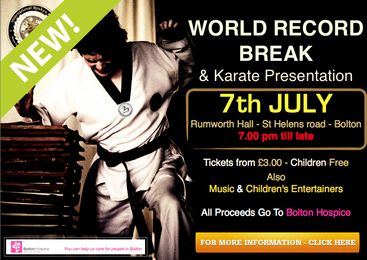 KARATE experts will host another “karate chop” record breaking attempt. Martial arts experts from the Ryukyu Karate Association will make the attempt next Saturday at Rumworth Hall, Bolton. Black-belt karate pros will step up to the stage in a bid to set a new record as they smash through tiles, breeze blocks and bricks with their bare hands. The evening will also feature entertainment, including a disco, children’s entertainer and stand up bingo. The event attracts crowds from far and wide each year in aid of Bolton Hospice. One of the organisers, Fergal Hughes, said: “The work Bolton Hospice does is outstanding, and I think everyone knows someone who has been affected by serious illness at some stage. “This is our way of saying thank-you, and helping to make sure that Bolton Hospice can carry on caring for people in Bolton facing life-limiting illnesses.” Tickets are available from Fergal on 07921 909567, or on the door. Entry is £3 for adults, and free for children. Written by the bolton evening news Bolton Karate demonstration - Bolton Karate World Record - Steve Costello Karate Breaking is an art in itself and it just shows you when your not trained how hard things can get.lol Lindsey Bayes - Demonstrates her fighting skills from a very early age, in 1988 Lindsey bayes was the
youngest black belt in Europe and with all the skill to match. |
Sensei Steve Costello's news Archives
July 2014
Categories
All
|

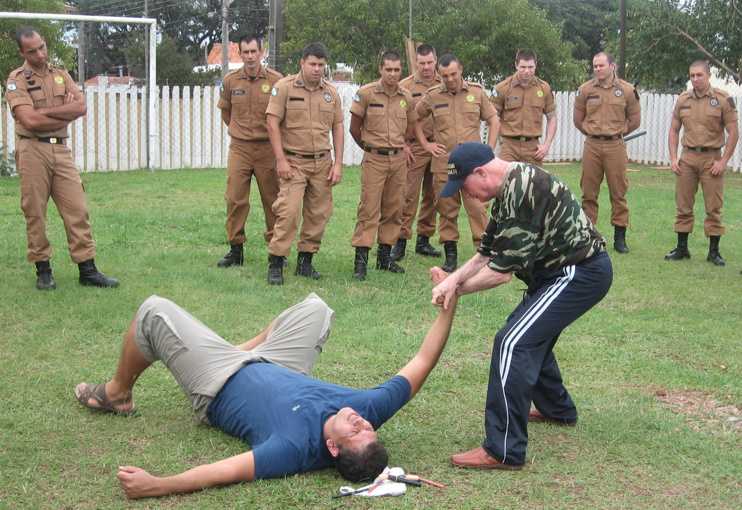
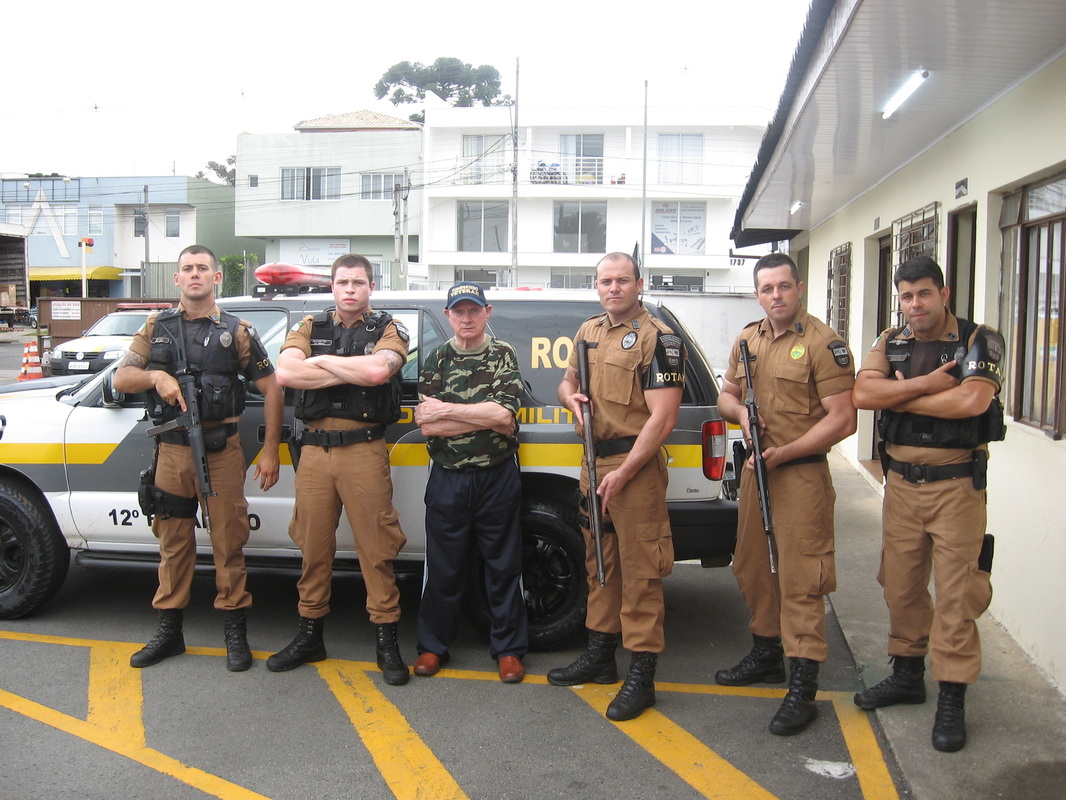
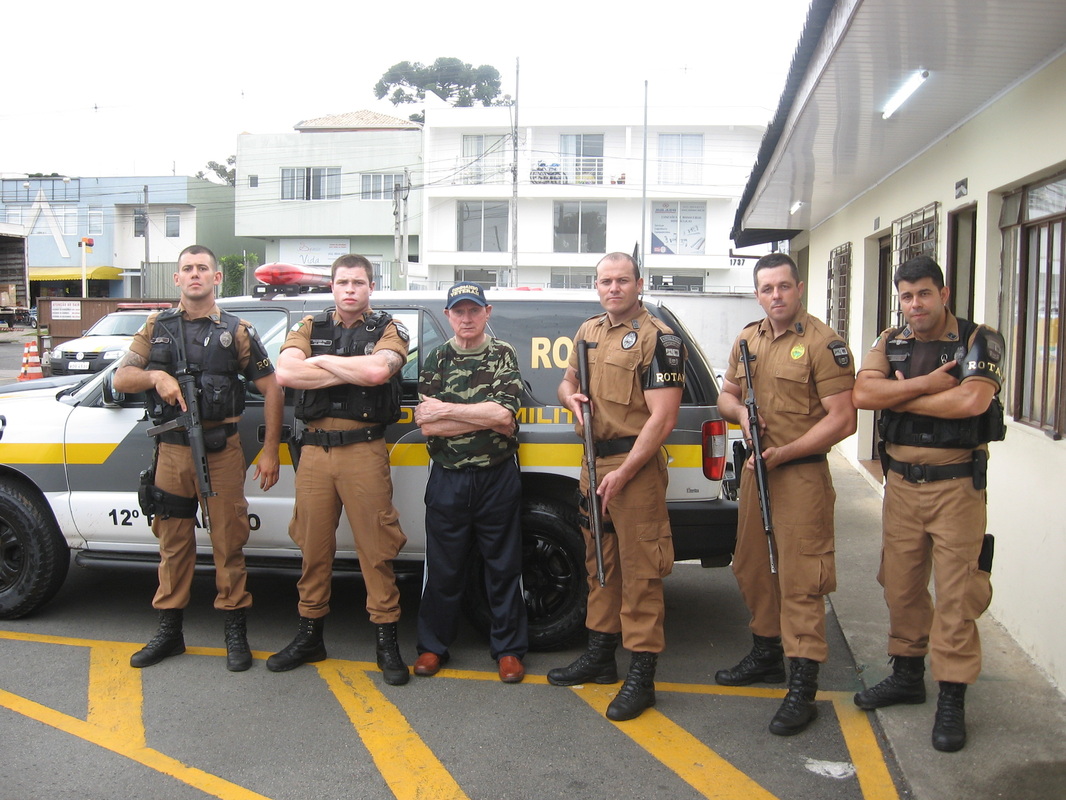
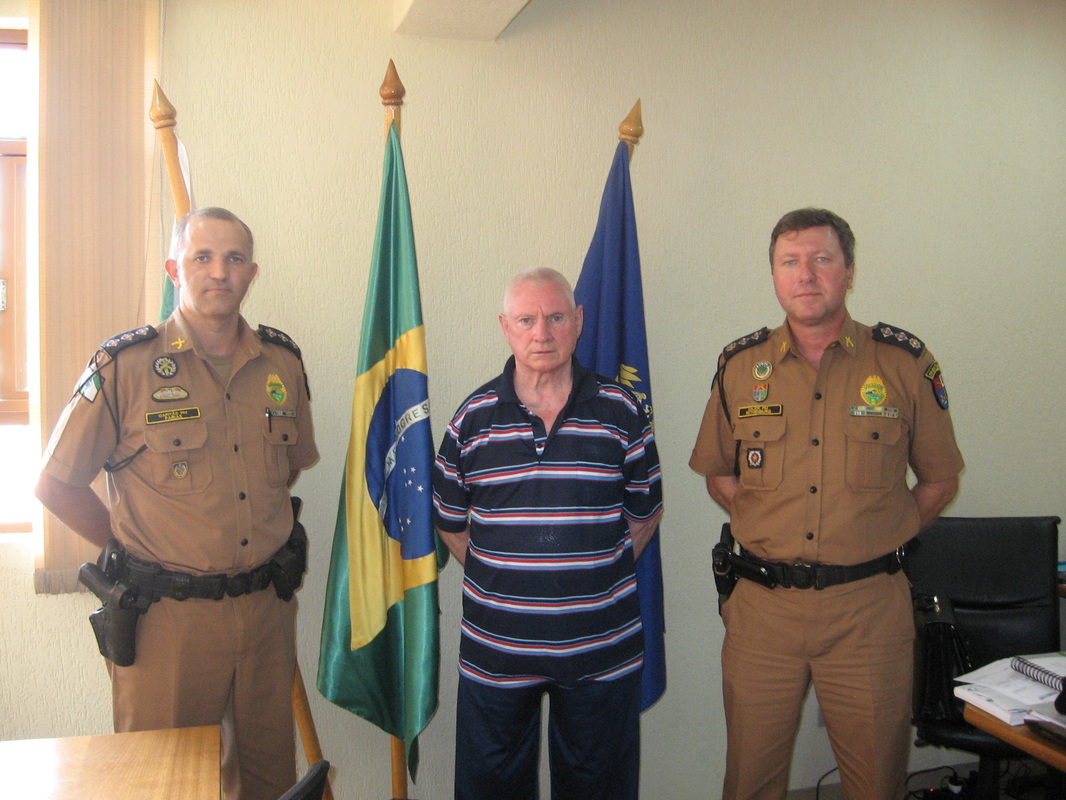
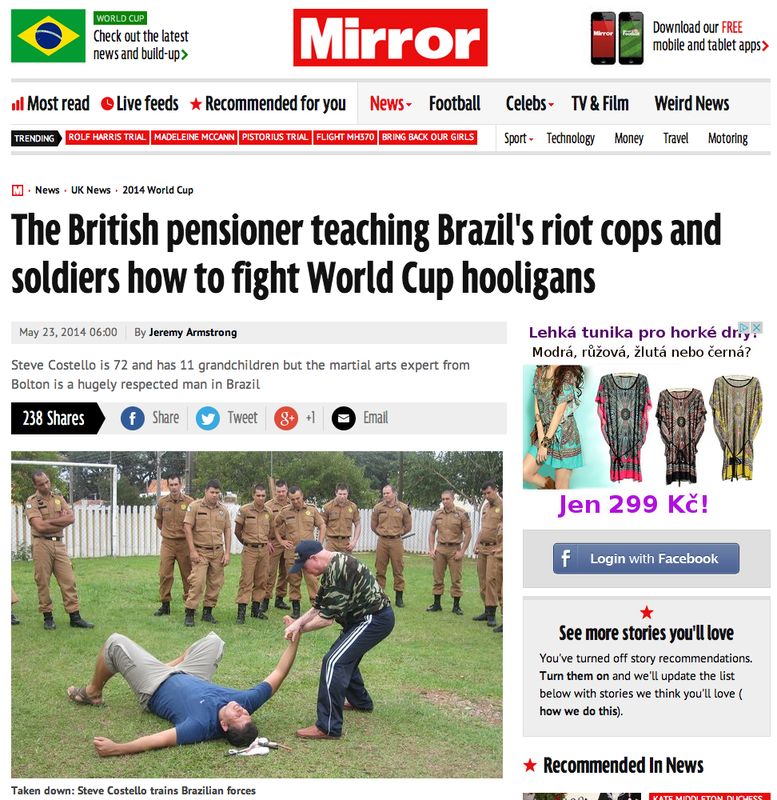
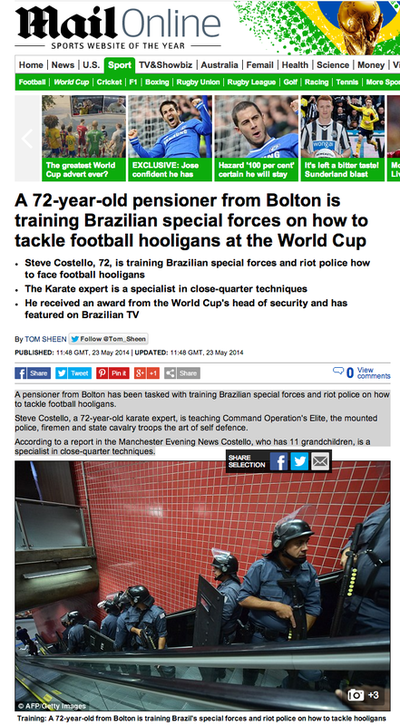
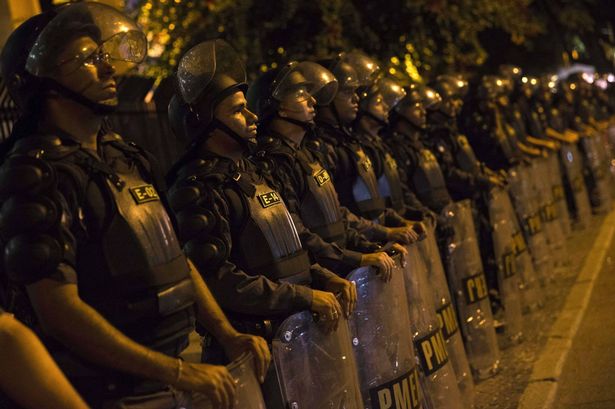
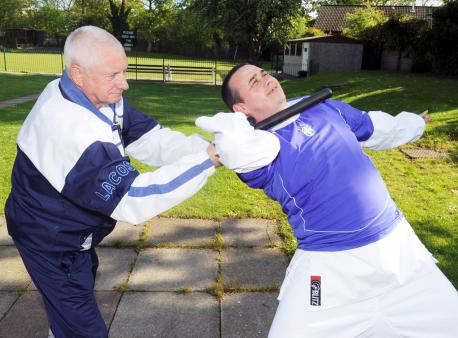


 RSS Feed
RSS Feed
